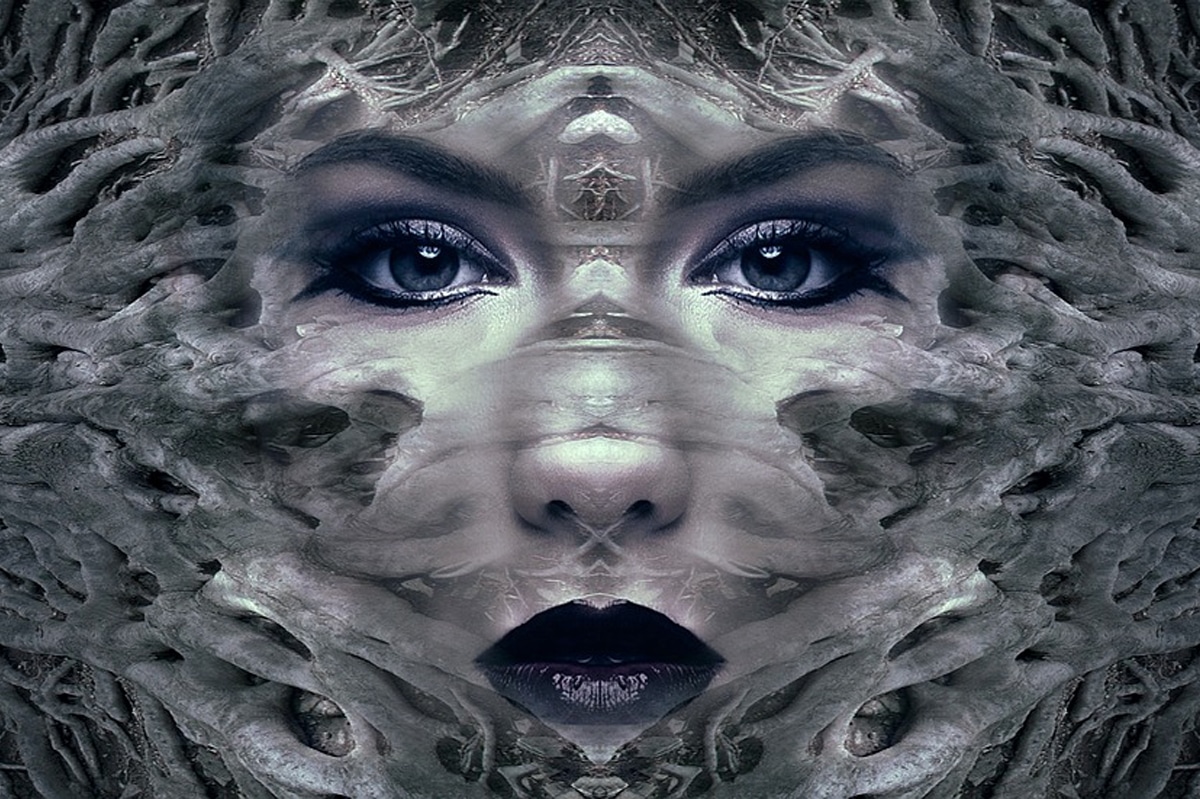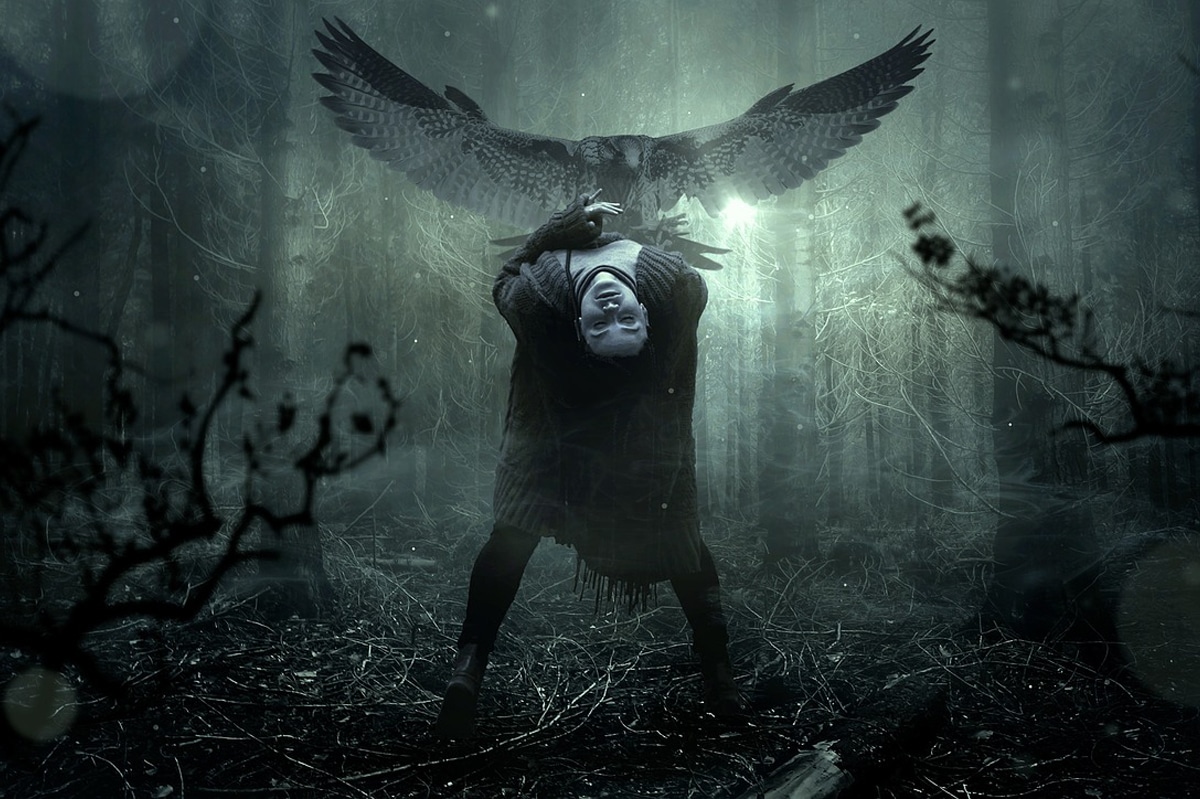
On occasion, mention is made of a creature called a succubus, but what is it? This creature of mythology and folklore has fascinated mankind for centuries. To this day, reference is made to it in multiple movies, series, books and video games.
The figure of the succubus has evolved through history, from being seen as an evil creature in medieval mythology to being portrayed in a more complex way in contemporary culture. In this article we will talk about the meaning, origin and evolution of the succubus throughout history.
What is a succubus?

A succubus is a female demonic creature from medieval mythology and folk lore. According to what they say, she appears in dreams to seduce and deceive men. This creature appears as a beautiful woman with the aim of seducing men to obtain their seed or to cause their death. The word "succubus" comes from the Latin "succubus", which means "the one who lies below" or "the one who lies with".
According to some traditions, the succubus is a demon that appears in the form of a woman to have sexual relations with men while they sleep. Other cultures consider the succubus to be a feminine spirit that takes advantage of men to obtain their vital energy. In both cases, It is considered that this creature is evil and seeks to deceive and seduce men to get something from them.
In some religious traditions, succubi are considered to be evil beings, while in other traditions they are considered to be neutral beings that simply obey their nature. Nevertheless, in general they are associated with temptation, sin and evil.
What powers does a succubus have?
In mythology and folklore, succubi are described as demonic creatures with a variety of powers and abilities. Some of the more common powers attributed to them include the following:
- Seduction: Succubus possess the ability to seduce men through their physical appearance and charming personality.
- Delusion: They are able to create illusions and deceive people, pretending to be someone they are not.
- Mental control: These creatures can control the mind of their victims, making them do things they don't want to do.
- Sleep manipulation: Succubus possess the ability to enter people's dreams and control them, often to have sex with them.
- Change of form: They are capable of changing their shape and appearance, often to trick their victims.
- Immortality: These creatures are considered immortal beings that do not age or die.
- Power over nature: Some traditions describe succubi as beings with power over nature. Some examples would be controlling the weather or moving objects with your mind.
It is important to note that these representations of the powers of a succubus they vary depending on the tradition or story in which it is mentioned. Not all traditions or stories include the same powers or abilities to these creatures. In fact, some can vary significantly.
Concept evolution

The concept of succubus has evolved throughout history, largely due to changes in religious and cultural beliefs. In medieval mythology, these creatures were seen as evil beings, female demons that appeared in men's dreams to seduce and deceive them. It was believed that the succubi were sent by the devil to tempt men and lead them to perdition. In this era, they were considered dangerous and feared.
Over time, the image of the succubus has evolved, it has become more sensual, and has been associated more with temptation and sin, instead of being seen as an evil creature. In some cases, he has become an attractive and desired figure, both in literature and in art.
In contemporary culture, the concept of the succubus has become more complex and has been used in a variety of contexts, from horror and fantasy literature to video games and film. She is often portrayed as an attractive and seductive creature, but can also be portrayed as a dangerous creature or even a complex character with motivations and desires of her own. In some modern representations, the succubus is seen as a creature that simply seeks to survive or get what it needs, instead of being seen as evil or malicious.
Summing up, we can say that the concept of the succubus has evolved throughout history, going from being seen as an evil and feared creature in medieval mythology, to being portrayed in a more complex and varied way in contemporary culture, being sometimes seen as a seductive, dangerous creature or as a complex character with his own motivations and desires.
Is a vampire a succubus?
In general, the vampire and the succubus are two different creatures from mythology and folklore. Although both are evil beings related to death and seduction, have significant differences in their history, both in characteristics and abilities.
A vampire is a creature that feeds on the blood of people. and is believed to be immortal. These beings are known for their ability to transform into bats and his fear of the sun. They are also associated with immortality and have superhuman abilities such as strength and speed.
On the other hand, a succubus is a female demonic creature that appears in dreams to seduce and deceive men. These creatures are known for their ability to create illusions, control sleep, and seduce their victims. They are often associated with temptation and sin, and associated with evil.
In some traditions, the vampire and the succubus are related to two sides of the same coin, both are evil and sinister beings who seek to deceive and seduce people to obtain something from them, and are often described as immortal beings. However, in general, the vampire and the succubus are considered as distinct creatures with different characteristics and abilities.
I hope that with all this information it has become clear to you what a succubus really is!